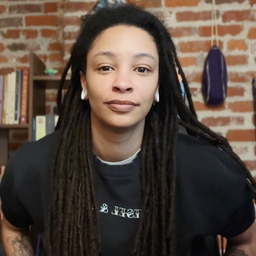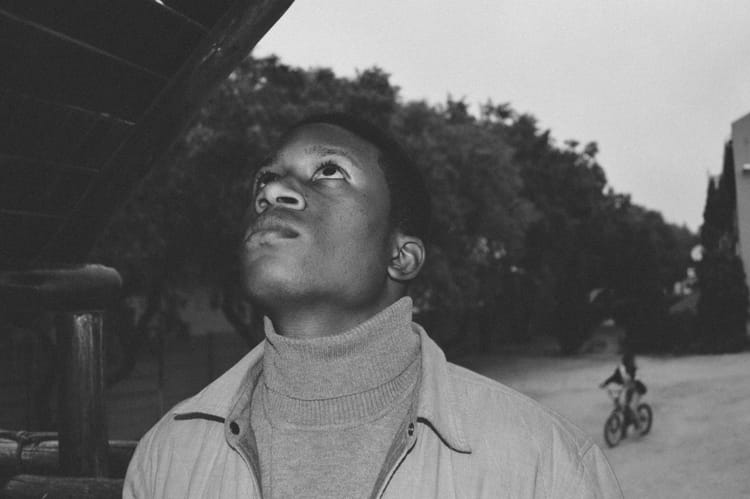Know Your Rules

A lot of my clients are chronic over-thinkers and intellectualizers. I’m in recovery for this myself, and just had to relearn a good lesson.
The general experience for me as a coach is this:
- They routinely tell me they‘re sick of thinking so much. They want to do less of it.
- Many (not all) of them struggle with indecision in certain domains of life and want to be more decisive.
- The indecision keeps them in patterns they hate. They can’t decide how they want to break the pattern, even if they’ve known for a long time the pattern needs to be broken.
- All of them make a lot of decisions throughout the day, every day. Not just for themselves, but for others. They feel a big responsibility about this and some of them resent it. They’re tired.
- Some are downright exhausted and mentally burned out on this alone, causing them to lean avoidant in relationships (and at times, life) due in large part to the weight of the choices and responsibility they feel they carry.
- About half of them have anxiety, talk about it, and battle with it, along with a harsh inner critic.
- Those who don’t have a harsh inner critic experience routine despair. (The inner critic can often turn to despair as its next line of defense when it’s not using criticism as motivation).
And as much as we say we’re “sick of thinking so much”, that’s almost never the full story.
Many of us “over-thinkers” really love our brains. We spend time in our minds and in many ways, we like it here. We’re beautifully deep and complex thinkers. Critical thinking and creative problem solving light us up when we’re doing the kind of thinking and problem solving that lights us up. Our minds and imaginations come up with some really cool, entertaining, and profound ideas.
Luckily my anxiety’s spiked a bit this season. I say “luckily” because it reacquainted me with my old overthinking (and the exhaustion that comes with it) which helped me revisit an old lesson that’s been critical for this aspect of my mental health. A lesson that really helped me balance out this love-hate relationship I had with thinking. It worked for me for so long I forgot to be intentional about it, so when it was knocked off track, it took me a while to recall it.
In short: thinking isn’t the problem.
When we think about the things we want to think about, we love it. We have fun. We create new things that bring us joy and enjoyment. We creatively solve problems we want to solve and feel a sense of pride in making those contributions. We have deep, stimulating conversations and we have a deeper, more stimulating relationship with our lives and the world.
We love thinking. We love putting our minds to good use and there’s nothing wrong with this. It’s a part of our gift and for many of us it ties closely to our sense of purpose and a positive sense of identity.
We do not love making decisions we do not want to have to make. This is where the exhaustion comes from. The overwhelm, despair, stress, and criticism. We do not love feeling stuck, ruminating over decisions and the nuances of those decisions that we do not feel safe or equipped to make. We do not love finding ourselves in that kind of stressed, indecisive, overthinking space over, and over, and over again for the same old tired patterns we can’t figure out how to break.
We seldom realize the indecision itself is a large part of the pattern.
For those this applies to, it’s possible you don’t have thinking fatigue. You have decision fatigue. And decision fatigue is an extremely solvable problem that —for once—doesn’t always require any damn trauma work.
Decision fatigue has some pretty practical fixes.
Nobody spelled this out for me, but when I got my mental health (and life) in order in my late twenties—which was the time I became more decisive and stopped overthinking—I started by setting a bunch of rules for myself.
I got curious about what choices seemed to be “bad” for my mental health most of the time, and which ones were “good” for my mental health most of the time. I set rules designed to cut out the bad, and have more of the good.
Rules aren’t just boundaries, nor are they just standards or just anything else. Rules are pre-made decisions (about both of those things and more), that we make once so that we don’t have to make them over and over and over again.
Rules helped me know what choice I was making without having to spend so much time thinking and deliberating about the choices.
With some well laid intentional rules, the decisions I used to ruminate about were pre-made, and this cleared space for me to really focus on the things I wanted to think about. Conversations I wanted to explore deeply, problems I wanted to solve, things I wanted to create and nuances I wanted to explore.
I wanted to spend more time thinking about goals, the kind of life I wanted to build, the kind of person I wanted to be and the steps I wanted to take to get there. How I and the people I care about could really work together toward thriving. What fun and exciting things I wanted to explore and do in my relationships, career, and life.
But if I wanted to spend more time in that zone, I really needed to spend less time thinking about things I hated spending so much energy on: like how to reply to text messages and emails, what events to say yes and no to, when it’s okay to interrupt my schedule and when it’s not, what kinds of drama was worth giving my attention to, how to handle conflict, what kind of treatment I was okay with receiving, how to manage my energy levels, etc.
So I started setting rules for myself about all of these things I didn’t want to have to consistently deliberate with myself about. The decision was made once, then this cleared space for me to let my mind explore things that felt much better to me.
In the morning, for example, I don’t get out of bed and decide what to do with my morning. It’s already been decided. I throw on clothes and head to the gym. Period.
Rule: I go to the gym as soon as I wake up.
I don’t spend much time deliberating over what to eat or what to wear. These decisions are mostly on repeat.
Rule: my wardrobe and meals are about 80% repeatable items, with a little room for indulging and getting creative when I have capacity to.
Rule: I don’t take last minute interruptions that would cause me to rearrange my schedule unless it’s an emergency. My schedule has already been decided for the day by the time the day arrives. I already played Tetris with my Calendar this morning, I’m not doing that shit again bro.
I also have relationship rules.
When I was dating, if someone didn’t show a level of interest that felt “right” to me, for any reason, I bowed out without taking it personally.
Rule: “I only date people whose interest and sincerity I don’t have to question.”
For friends and dating, if someone didn’t have capacity for healthy conflict resolution, I bowed out without taking it personally. They didn’t have to be perfect, but they have to be willing and the effort had to be clear.
Rules: “I date and befriend people who work through issues, not around them.” and “I don’t date people or befriend people who treat me like their enemy in moments of tension.”
Not only did this save me a lot of time and overthinking during my dating process and in choosing my friendships (trying to figure out if they’re interested or if they’re mad at me and so on), it landed me in relationships with people who I don’t have to worry about those things with—among other things.
The list goes on. I fell in love with rules and started establishing them in all domains of my life. Anything problem I solved or choice I deliberated through that didn’t feel good to me, that triggered my anxiety and felt extremely draining, I wanted to deliberate one time. Not a million times every time the opportunity came up.
I established rules for how I navigate business, what kinds of clients I work with, how I navigate conflict, family and friend matters, and more. Anything I don’t want to decide on (overthink about) over and over again, I started setting rules for.
The more established my rules were, the more “decisive”, assertive, confident I became in my decisions.
I felt empowered, more able to shape the outcomes in my life and the relationships I participated in. More on that, here:

Anyway, this is when I evolved into the kind of person who very discernibly knows who I am, what works for me, what doesn't, and how to honor these things.
When I look back I see it wasn’t really some magic formula. The rules I set for myself did 80% of the heavy lifting.
That’s their job.
If you own a bed, you don’t second guess where to sleep at night and wonder if you can trust yourself with the decision. You assert that ass where you already decided you were going to put it. Your hand reaches for your favorite pillow without even thinking. You know where to put your legs. It’s muscle memory. The rules have already been established.
Much of life can be this simple.
As you establish rules, it’ll feel different and maybe a little scary because it’s a change. They may be uncomfortable to communicate and follow through on. Take it at a pace that feels challenging but not dangerous. Work your way up, one important rule at a time, and notice how you get used to them and you learn how to communicate them as you go.
For communication, I ended up with scripts I’d repeat as casually a customer service rep noting policy, like “if it’s not in the calendar it doesn’t exist” or “hey look I think you’re cool but I don’t date people if I have to question where they stand with me” and that was that. It wasn’t up for debate. It’s policy. It’s the rule.
As I settled into my rules I grew more confident in applying them. They felt more like home. Instead of overthinking my life I started acting in my life in a way that shaped it, intentionally. It’s an empowering feeling. In a counterintuitive way, rules gave me choices and supported me in making them.
So of course I came off more decisive, assertive, and at peace with my choices. I was. But it was in large part because I didn’t have to decide again and again every time. Considering and testing some minor new nuance that wouldn’t make a huge difference at the end of the day for a lot of these choices.
The past few months I’ve experienced some big changes in my life. My overthinking spiked back up. I’ve been in a state of higher anxiety for weeks. I was so busy trying to keep up with my thoughts I didn’t notice at first, but when I caught onto this I reflected on it and it clicked: Shiiiiit with all the changes, I’ve lost sight of my rules!
What a fucking relief. This is so fixable. So simple. Not easy necessarily, but definitely simple. And frankly, easier than unpacking the deeper stuff. This is stabilizing work.
So I’m on that kick right now, working to re-establish some of those rules I lost track of, and consider what rules may really need to change long-term, if any. And since the lesson is fresh on my mind, I’m paying it forward. It’s a good one that’s easy to overlook.
Just yesterday I was invited to a conference and I noticed my indecision anxiety come right up. In the middle of the stressful back and forth, I caught myself. “Ah. It’s happening. I need a rule.”
I remembered back to the rule I used before: If I have capacity, the trip fulfills me personally, and it fulfills me professionally, I take the trip.
Immediately, I felt ease. I didn’t need a decision, I needed a rule that would make the decision easier (and less stressful) for me.
Decision fatigue is real for the “over-thinkers” and intellectualizers. Mental burnout is real for us. If that’s you, mind your rules.
And If The Concept of “Rules” Feels Like Pressure, or a Prison:
I get that too. When I first started this it took me a minute to develop a healthy regard for rules because I had a troubled relationship with rules in the past. Rules had been set for me in the past that I had no agency over, didn’t agree with, didn’t consent to, wasn’t heard about, and affected me poorly. At times they were weaponized against me.
Rules and I didn’t get along for a very, very long time.
But as I learned through my surrender to a life of structure, rules weren’t the problem in that experience. My lack of agency was. I didn’t get to choose my rules. I didn’t get to shape them to actually help me. I certainly didn’t get to stop them from hurting me or stop people from hurting me when I resisted them.
But this is not that. As an adult, we get to make our own rules for ourselves. We have all the agency. This is a personal code of conduct that we choose. The rules you set are your own. Your rules are what you want them to be. They do not have to look anything like mine. They look the way you need them to.
Furthermore, you get to decide what they are, when to make exceptions, and when to change them. You get to try a rule on for size, commit to it religiously for 2 weeks and then decide, “actually, I hate this rule” and let it go, guilt free.
They’re not a cage, they’re just a standard of your choosing. A tool. A default you get to lean on when making the decision ad hoc is stressful in a bad way, so you don’t want to have to do that more than once. When you prefer to focus on more meaningful, generative, and engaging things, your personal rules give you the space to do that.
So, I’ll ask you what I’ve asked myself and what I’ve been asking clients:
What rules can you set that will help you save your mental load for the meaningful things?
Rooting for You,
Tori
P.S. I’m legit curious about the rules you’re coming up with and perhaps your favorite rules that you already have. Reply to this email or comment below if you want to share!






Member discussion